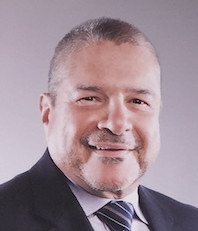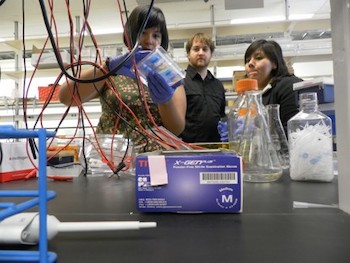CiHED
- About
- Programs
- Leadership Team
- Contact
- Antonio De Maio Laboratory
Located on UC San Diego's beautiful La Jolla campus, the Antonio De Maio laboratory is investigating the molecular and genetic bases of the response to injury. Traumatic injury is a major cause of mortality and morbidity in the United States, particularly among children. The De Maio research group has found that the response to injury is modulated by several confounding factors including genetic background, sex, age, diet, and environment. The major factor associated with morbidity and mortality injury is an overwhelming inflammatory response.
The Antonio De Maio group is using mouse genetics to identify genes that regulate the inflammatory process as potential therapeutic targets. In addition, the Antonio De Maio laboratory is studying the role of heat shock proteins in the regulation of the inflammatory response. The Antonio De Maio Laboratory is actively engaged in the training of basic scientists, future academic surgeons and students at the undergraduate, graduate and medical school levels.
 Dr. Antonio De Maio is a professor of Surgery and Neuroscience, a member of the Biomedical Sciences Graduate Program (BMS) at UC San Diego, and Director of the Center for Investigations of Health and Education Disparities (CIHED).
Dr. Antonio De Maio is a professor of Surgery and Neuroscience, a member of the Biomedical Sciences Graduate Program (BMS) at UC San Diego, and Director of the Center for Investigations of Health and Education Disparities (CIHED).
A graduate of the Central University of Venezuela in Caracas, Dr. Antonio De Maio received his Ph.D. from the Weizmann Institute of Science in Rehovot, Israel.He joined the faculty at UC San Diego School of Medicine in January 2006.
Prior to joining UCSD, Dr. De Maio was an Associate Professor and Research Director for the Division of Pediatric Surgery at Johns Hopkins University. While at Hopkins, Dr. De Maio led the Committee for the Recruitment of Under-represented Minorities to Graduate Programs and the Post-baccalaureate Research Education Program (PREP). At UC San Diego, Dr. De Maio continues to be very active in increasing student diversity in graduate and medical school.
In 2007, he received a Vice Chancellor of Health Sciences Equal Opportunity/Affirmative Action and Diversity Award. Dr. De Maio is the Director of the Initiative to Maximize Student Development (IMSD) Program at UC San Diego, which is supported by NIGMS-NIH.
Dr. De Maio is actively engaged in the training of undergraduate, graduate, medical students, and Post-docs, particularly students from disadvantaged social and economic backgrounds, students with disabilities, and students from minority groups that are under-represented in science. Additionally, Dr. De Maio actively mentors future academic surgeons and other health-related professionals.

UC San Diego La Jolla Campus
School of Medicine Building 4
Room 150
Laboratory Phone: 858-822-5387
Email: ademaio@ucsd.edu